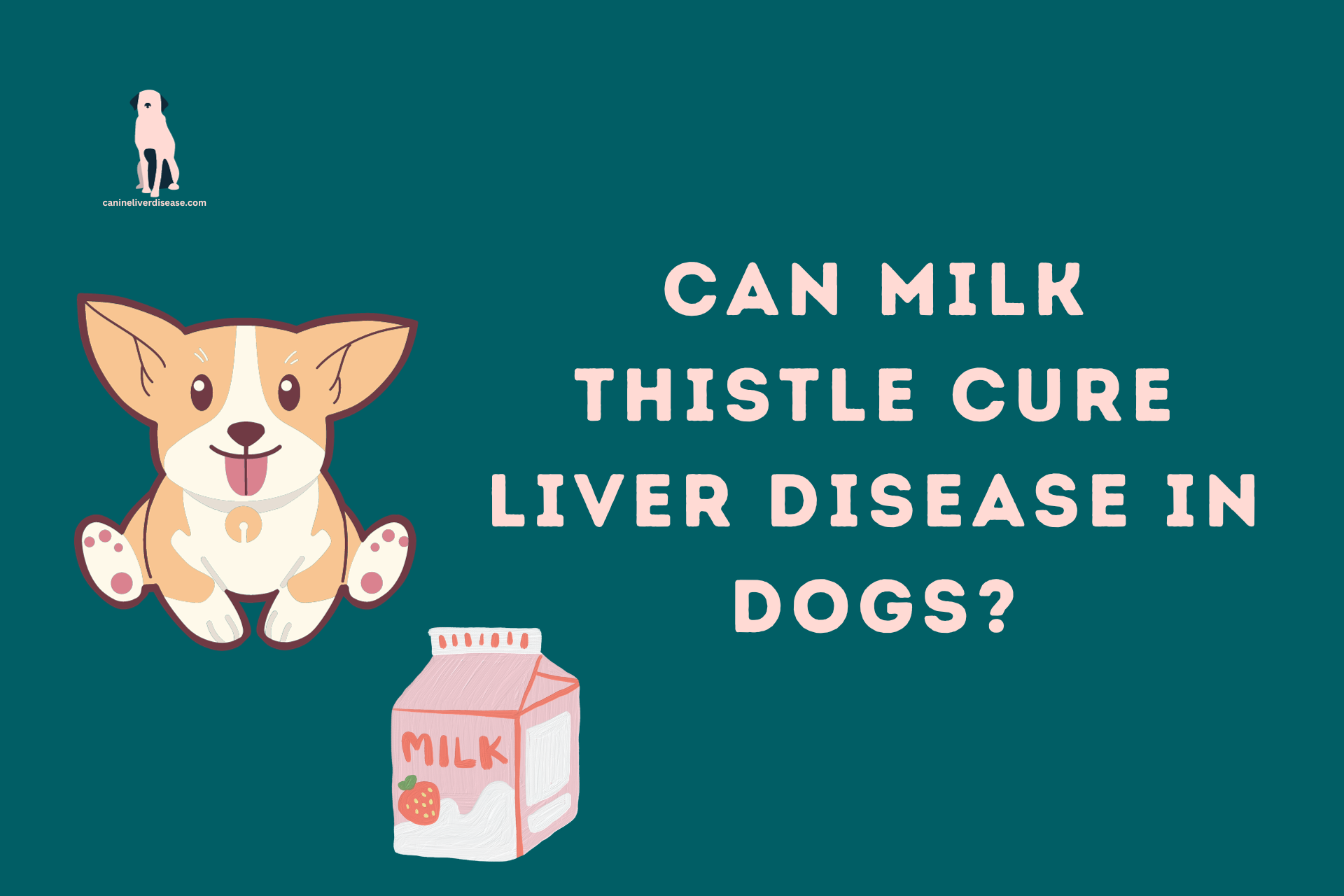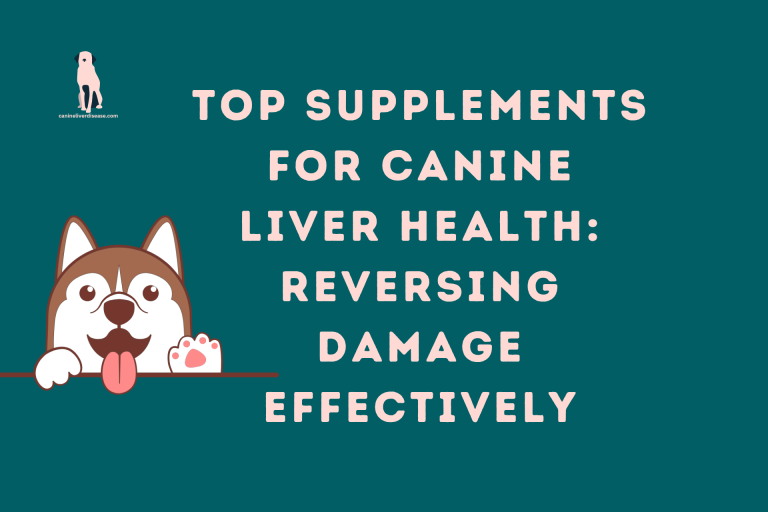Can milk thistle cure liver disease in dogs?
In this comprehensive article, we will explore the potential benefits of milk thistle in treating liver disease in dogs. Our informative and caring tone aims to provide you with a clear understanding of how milk thistle can support your pet’s liver health. Let’s delve into the world of milk thistle, liver function, and its role in promoting the well-being of your furry companion.
Understanding Liver Disease in Dogs
Liver disease can affect dogs just as it does humans. The liver plays a vital role in maintaining overall health, including detoxification, metabolism, and the production of essential proteins. When liver function is compromised, it can lead to a range of health issues for your beloved pet.
Liver disease in dogs can manifest in various forms, from acute conditions to chronic ailments. Common factors contributing to liver disease include exposure to toxins, infections, genetic predisposition, and certain medications. To understand how milk thistle can help, we first need to grasp the importance of a healthy liver.
The Crucial Role of the Liver
The liver is a powerhouse of the body, performing a multitude of functions essential for life. These functions include:
- Detoxification: The liver filters harmful toxins from the blood, helping to keep your pet’s body clean and healthy.
- Metabolism: It processes nutrients from food, regulates glucose levels, and stores vital vitamins and minerals.
- Protein Synthesis: The liver produces proteins necessary for blood clotting, immune function, and maintaining muscle mass.
- Bile Production: Bile, produced by the liver, aids in digestion and the absorption of fats.
- Storage: The liver stores essential nutrients, including vitamins A, D, and B12, as well as iron.
Given these critical functions, it’s evident that a healthy liver is crucial for your dog’s well-being.
Milk Thistle: A Natural Support for Liver Health
Milk thistle, scientifically known as Silybum marianum, has gained popularity in both human and veterinary medicine for its potential liver-supporting properties. Let’s explore how milk thistle may help dogs with liver disease:
- Silymarin’s Protective Effect: The active ingredient in milk thistle, silymarin, is known for its antioxidant and anti-inflammatory properties. These qualities may help protect liver cells from damage caused by toxins and oxidative stress.
- Promoting Liver Cell Regeneration: Silymarin has been shown to stimulate the growth of new liver cells, aiding in the recovery of damaged liver tissue.
- Detoxification Support: Milk thistle may enhance the liver’s detoxification processes, helping to remove harmful toxins from your dog’s body.
- Anti-Inflammatory Action: Inflammation often accompanies liver disease. Milk thistle’s anti-inflammatory properties can help reduce inflammation in the liver.
- Improving Liver Enzyme Levels: Studies suggest that milk thistle may help normalize elevated liver enzyme levels, a common marker of liver disease.
How to Administer Milk Thistle to Your Dog
Now that we understand the potential benefits of milk thistle, it’s essential to know how to incorporate it into your pet’s routine. Here are some tips:
- Consult Your Veterinarian: Before starting any new supplement, it’s crucial to consult your veterinarian. They can assess your dog’s specific needs and provide guidance on the appropriate dosage.
- Choose High-Quality Supplements: Look for milk thistle supplements designed for pets. These products typically come in liquid or capsule form and are available at pet supply stores or online.
- Follow Dosage Instructions: Administer the recommended dosage as per your veterinarian’s guidance. It’s essential to give the correct amount to ensure your dog’s safety.
- Monitor Your Pet: Keep an eye on your dog’s overall health and behavior while using milk thistle. Report any changes to your veterinarian.
FAQs: Addressing Common Questions
Q1: Can milk thistle cure liver disease in dogs completely?
A1: While milk thistle can support liver health and aid in recovery, it may not cure liver disease entirely. Its benefits include protecting liver cells, promoting regeneration, and improving liver function.
Q2: Are there any side effects of milk thistle for dogs?
A2: Milk thistle is generally considered safe, with minimal side effects reported. However, it’s essential to follow dosing guidelines and consult your veterinarian.
Q3: Can I give my dog milk thistle if they are on other medications?
A3: Always consult your veterinarian before adding any supplements, including milk thistle, to your dog’s regimen, especially if your pet is taking other medications.
Conclusion: Supporting Your Dog’s Liver Health
In conclusion, milk thistle can be a valuable addition to your dog’s wellness routine, particularly if they are dealing with liver disease or liver-related issues. Its natural properties, including silymarin, can aid in protecting and rejuvenating liver cells, potentially improving liver function.
However, it’s crucial to remember that milk thistle should complement, not replace, veterinary care. Always consult with your veterinarian before introducing any new supplement to your pet’s diet. Your veterinarian can provide personalized advice and monitor your dog’s progress.
As responsible pet owners, we have a duty to ensure the well-being of our furry companions. By incorporating milk thistle under the guidance of a veterinary professional, you can take a proactive step toward promoting a healthy liver and a happier, healthier dog.







